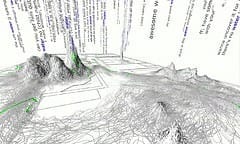
IN the 1960s, mainframe computers posed a significant technological challenge to common notions of privacy.
That’s when the federal government started putting tax returns into those giant machines, and consumer credit bureaus began building databases containing the personal financial information of millions of Americans. Many people feared that the new computerized databanks would be put in the service of an intrusive corporate or government Big Brother.
“It really freaked people out,” says Daniel J. Weitzner, a former senior Internet policy official in the Obama administration. “The people who cared about privacy were every bit as worried as we are now.”
Along with fueling privacy concerns, of course, the mainframes helped prompt the growth and innovation that we have come to associate with the computer age. Today, many experts predict that the next wave will be driven by technologies that fly under the banner of Big Data — data including Web pages, browsing habits, sensor signals, smartphone location trails and genomic information, combined with clever software to make sense of it all.
Proponents of this new technology say it is allowing us to see and measure things as never before — much as the microscope allowed scientists to examine the mysteries of life at the cellular level. Big Data, they say, will open the door to making smarter decisions in every field from business and biology to public health and energy conservation.
“This data is a new asset,” says Alex Pentland, a computational social scientist and director of the Human Dynamics Lab at the M.I.T. “You want it to be liquid and to be used.”
But the latest leaps in data collection are raising new concern about infringements on privacy — an issue so crucial that it could trump all others and upset the Big Data bandwagon. Dr. Pentland is a champion of the Big Data vision and believes the future will be a data-driven society. Yet the surveillance possibilities of the technology, he acknowledges, could leave George Orwell in the dust.
The World Economic Forum published a report late last month that offered one path — one that leans heavily on technology to protect privacy. The report grew out of a series of workshops on privacy held over the last year, sponsored by the forum and attended by government officials and privacy advocates, as well as business executives. The corporate members, more than others, shaped the final document.
The report, “Unlocking the Value of Personal Data: From Collection to Usage,” recommends a major shift in the focus of regulation toward restricting the use of data. Curbs on the use of personal data, combined with new technological options, can give individuals control of their own information, according to the report, while permitting important data assets to flow relatively freely.
“There’s no bad data, only bad uses of data,” says Craig Mundie, a senior adviser at Microsoft, who worked on the position paper.
The Latest Bing News on:
Big Data
- Data Dynamics: Shaping the Future of Online Casino Analyticson May 8, 2024 at 12:33 pm
The intricate symbiosis between technology and data analytics is fundamentally reshaping the strategies and operations of online casinos, marking a new era in online gambling. This discourse assesses ...
- Lagrange raises $13M to build blockchain-based cryptographic ‘big data’-scale computationon May 8, 2024 at 11:26 am
Lagrange Labs, a startup building the blockchain-based cryptography protocol Lagrange, today announced it raised $13.2 million in seed funding to progress its vision of scaling up verifiable ...
- Big data helps determine what drives disease riskon May 8, 2024 at 10:21 am
Working with nearly 3,000 observations across almost 1,500 host-parasite combinations, researchers at Notre Dame University have found that biodiversity loss, chemical pollution, introduced species, ...
- Unlocking big data in commercial real estateon May 8, 2024 at 7:00 am
Strategists at a commercial real estate developer recently had a major “Aha!” moment: The markets they are targeting for new projects are precisely those where the competition is most intense, ...
- In an Era of Artificial Intelligence and Big Data, Human Touch Is Neededon May 8, 2024 at 6:19 am
While AI can assist with some decisions, it’s feasible that, at some level, overreliance on these technological capabilities ...
- Unveiling the Power of Big Data Analytics in the Casino Industryon May 7, 2024 at 1:12 pm
The modern digital era is the age of data and this applies to casinos as well. Big data analytics has transformed the working process of casinos providing them with vital information about player ...
- Pan Singh Dhoni: Trailblazing the Frontier of Data, Big Data, and AI Advancementson May 7, 2024 at 7:24 am
Originally Published on 7th May 2024 In the dynamic and ever-changing realm of data, big data, and artificial intelligence (AI), Pan Singh Dhoni stands out as a pioneering figure. His expertise, which ...
- AI and Big Data Take the Centre Stage in Central Asia at Beetech 2024 Hosted by Beeline Kazakhstan and QazCodeon May 6, 2024 at 3:43 am
Kazakh and international delegates participate in the annual conference, discussing artificial intelligence, big data analytics and app ...
- Big Data and Global Trade Lawon May 6, 2024 at 1:04 am
39, Issue. 1, p. 85. This collection explores the relevance of global trade law for data, big data and cross-border data flows. Contributing authors from different disciplines including law, economics ...
- Publicis Won’t Use Nielsen’s Big Data as Currency in This Upfronton May 3, 2024 at 6:14 am
Giant media buyer believes numbers haven’t been stable and there isn’t enough historical data to make projections ...
The Latest Google Headlines on:
Big Data
[google_news title=”” keyword=”Big Data” num_posts=”10″ blurb_length=”0″ show_thumb=”left”] [/vc_column_text]The Latest Bing News on:
Bad uses of data
- Almost one-third of local internet traffic associated with bad botson May 8, 2024 at 4:44 pm
Australia remained in the top three countries targeted by bad bots, representing 8.4% of all bot attacks globally, ranking third behind the US and the Netherlands. Bots (good and bad) now make up 36.4 ...
- Microsoft goes from bad boy to top cop in the age of AIon May 7, 2024 at 2:06 am
The tech company fields teams of disinformation-hunters, computer scientists and policy officials in a bid to stop artificial intelligence from gatecrashing the 2024 global election cycle.
- Nervous about falling behind the GOP, Democrats are wrestling with how to use AIon May 6, 2024 at 12:30 pm
The Biden campaign and top Democrats are wrestling with how best to use artificial intelligence, exposing the party’s anxiety over falling behind Republicans in the race to deploy technology that ...
- How Bad Are Ultraprocessed Foods, Really?on May 6, 2024 at 2:00 am
Unprocessed or minimally processed foods, like fresh or frozen fruits and vegetables, beans, lentils, meat, poultry, fish, eggs, milk, plain yogurt, rice, pasta, corn meal, flour, coffee, tea and ...
- Back to taking comfort in the bad data [Video]on May 5, 2024 at 10:21 pm
Investors are clearly happy to keep with the trend of looking for bad news to help pressure the Fed into more investor friendly monetary policy. This is playing out yet again after the latest batch of ...
- Transfer Data and Protect Your Hard Drive With $30 off EaseUS Disk Copyon May 3, 2024 at 9:03 am
This leading tool makes it easy and safe to migrate to new operating systems and PCs without any data loss, and it's just $29.99 for a limited time.
- Bad bots have taken over the interneton May 1, 2024 at 7:19 pm
More than a third of Australia’s Internet traffic is generated by automated bots, according to a new analysis that found good and bad bots scraping data, training generative AI (GenAI) platforms, ...
- LLM-Based Data Loss Prevention Is Dope Securityon April 30, 2024 at 2:00 pm
Dope.security's CASB Neural is a new solution that uses LLMs to deliver an innovative CASB tool that enhances the security and management of SaaS applications.
- FBI: Bad actors can use public USB ports to steal dataon April 29, 2024 at 7:34 pm
SIOUX CITY (KTIV) - The FBI is warning that public USB ports can’t be trusted anymore because they can open up an avenue for bad actors to steal your data while your phone is charging.
- AT&T vs. Google Fi: How much is unlimited data worth?on April 28, 2024 at 11:30 am
When it comes to mobile, AT&T is one of the first names to come to mind with excellent nationwide coverage and plenty of data on its postpaid plans, but it's one of the most expensive options for a ...
The Latest Google Headlines on:
Bad uses of data
[google_news title=”” keyword=”bad uses of data” num_posts=”10″ blurb_length=”0″ show_thumb=”left”]










